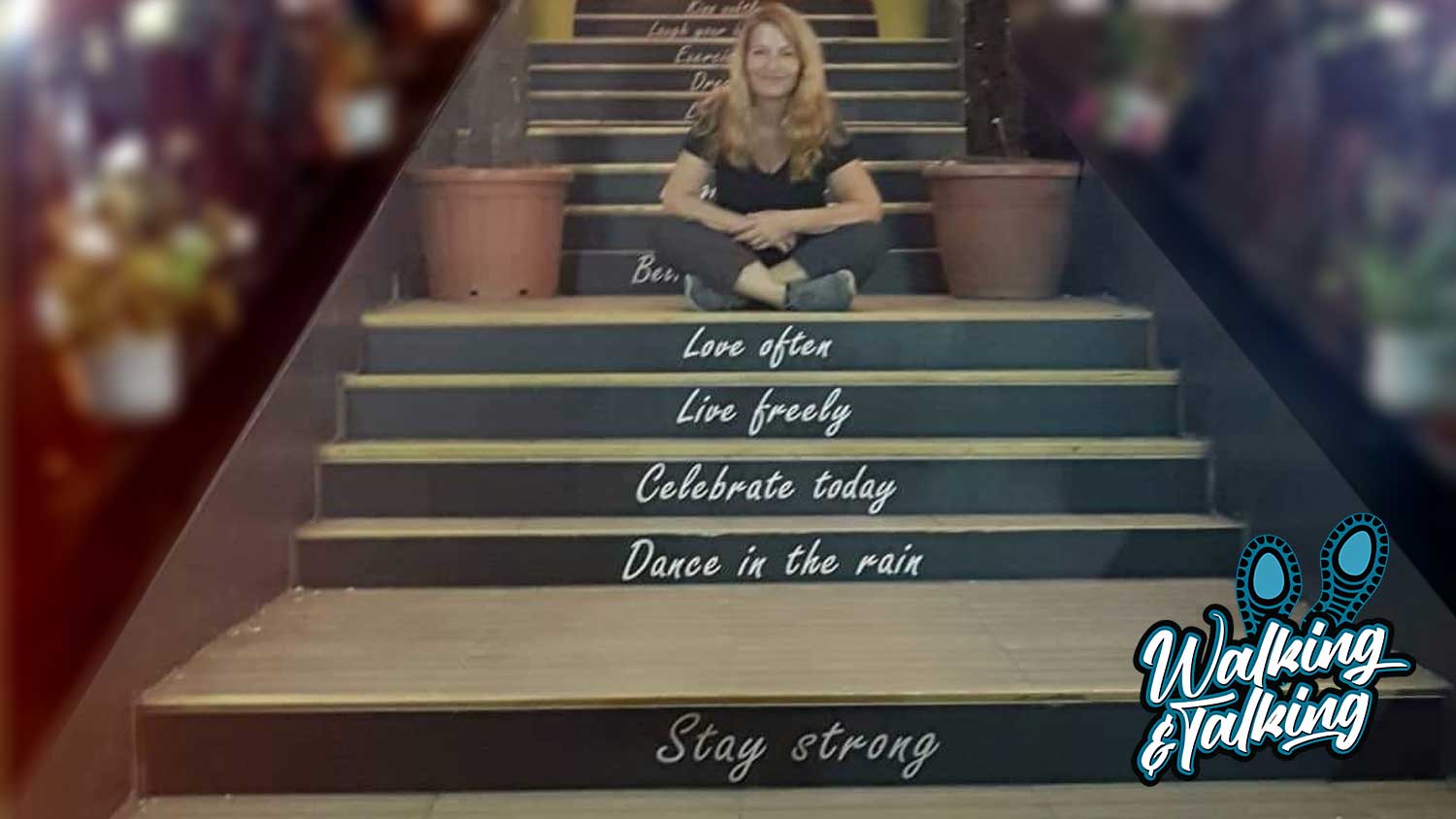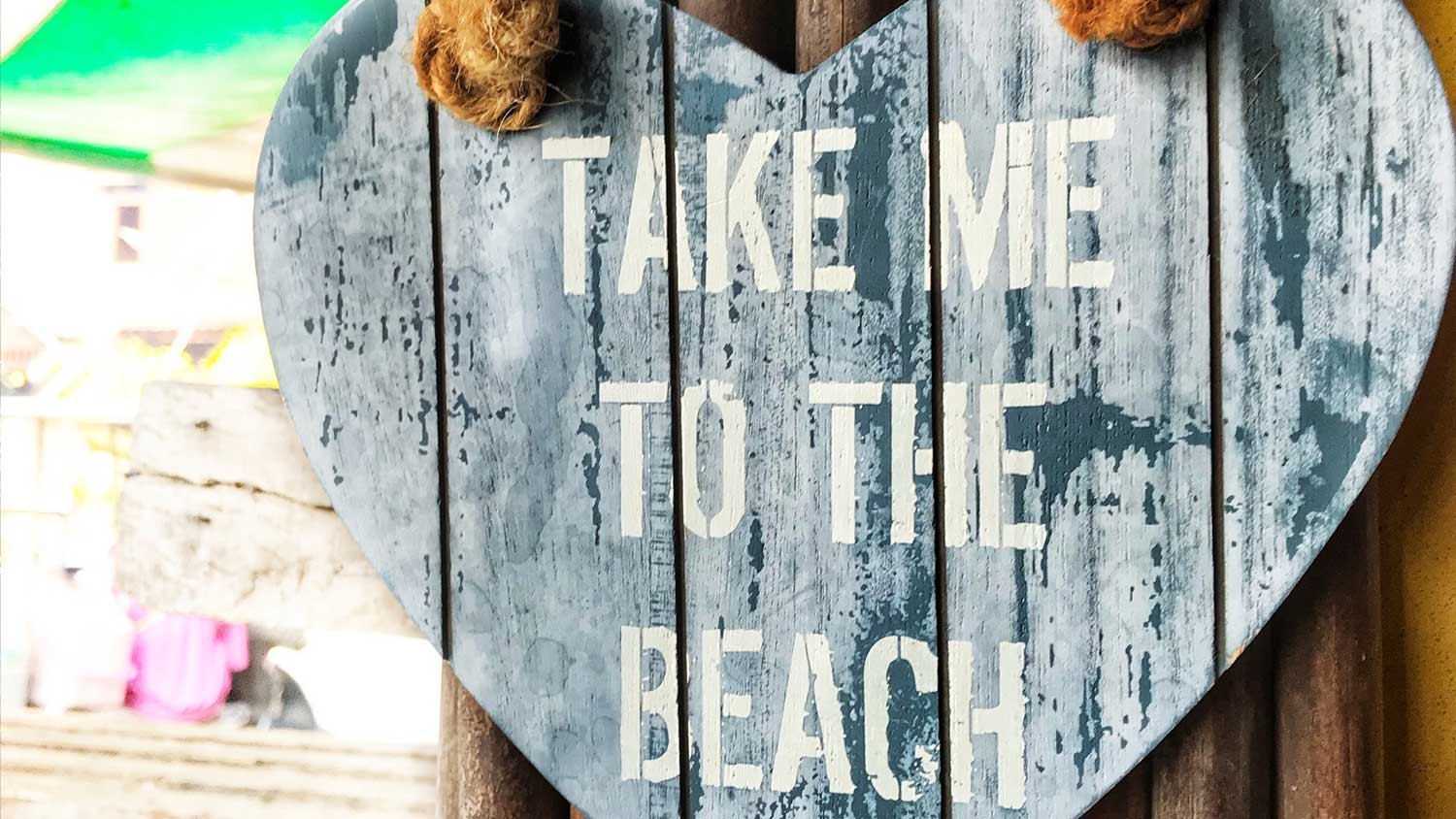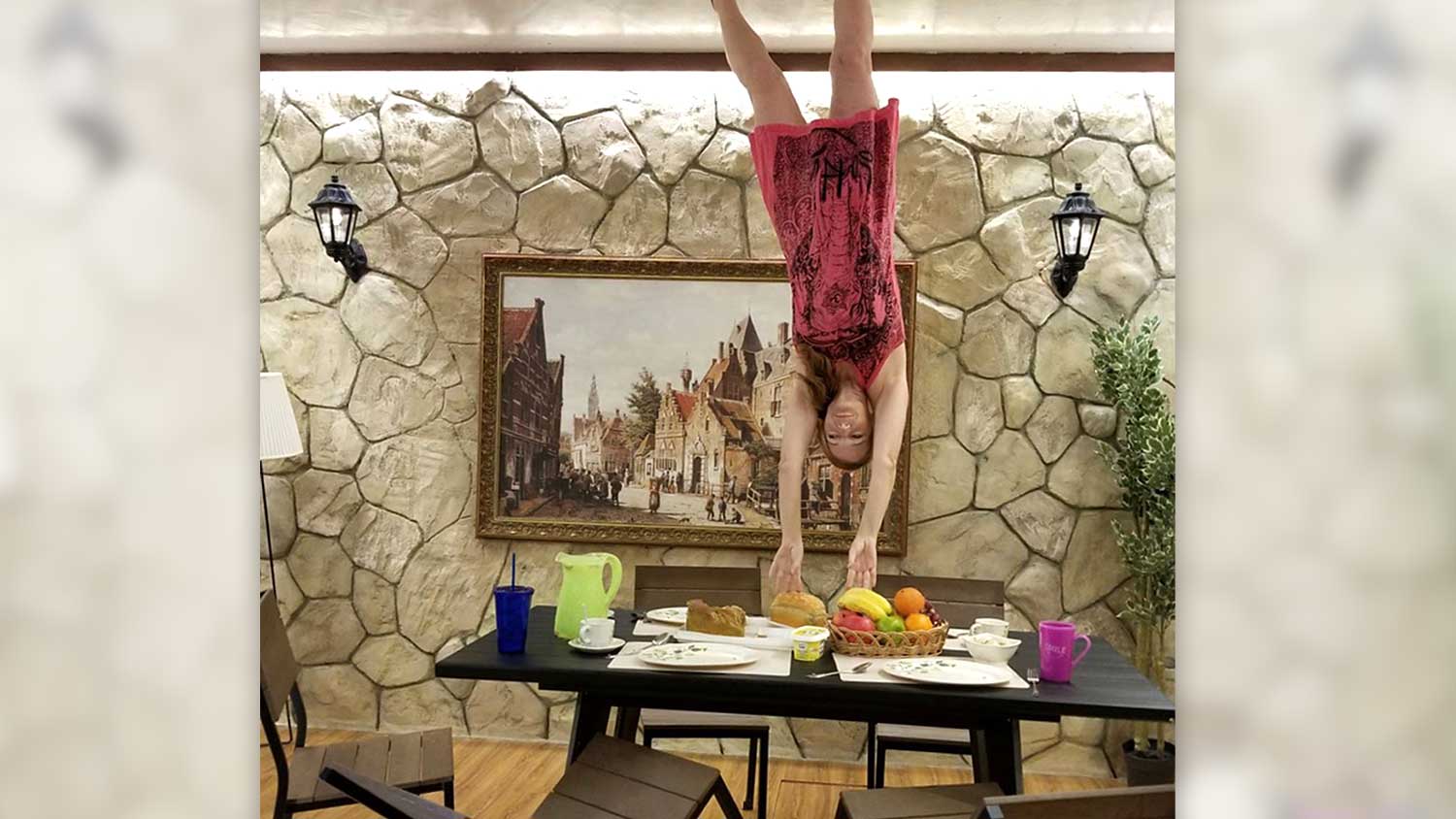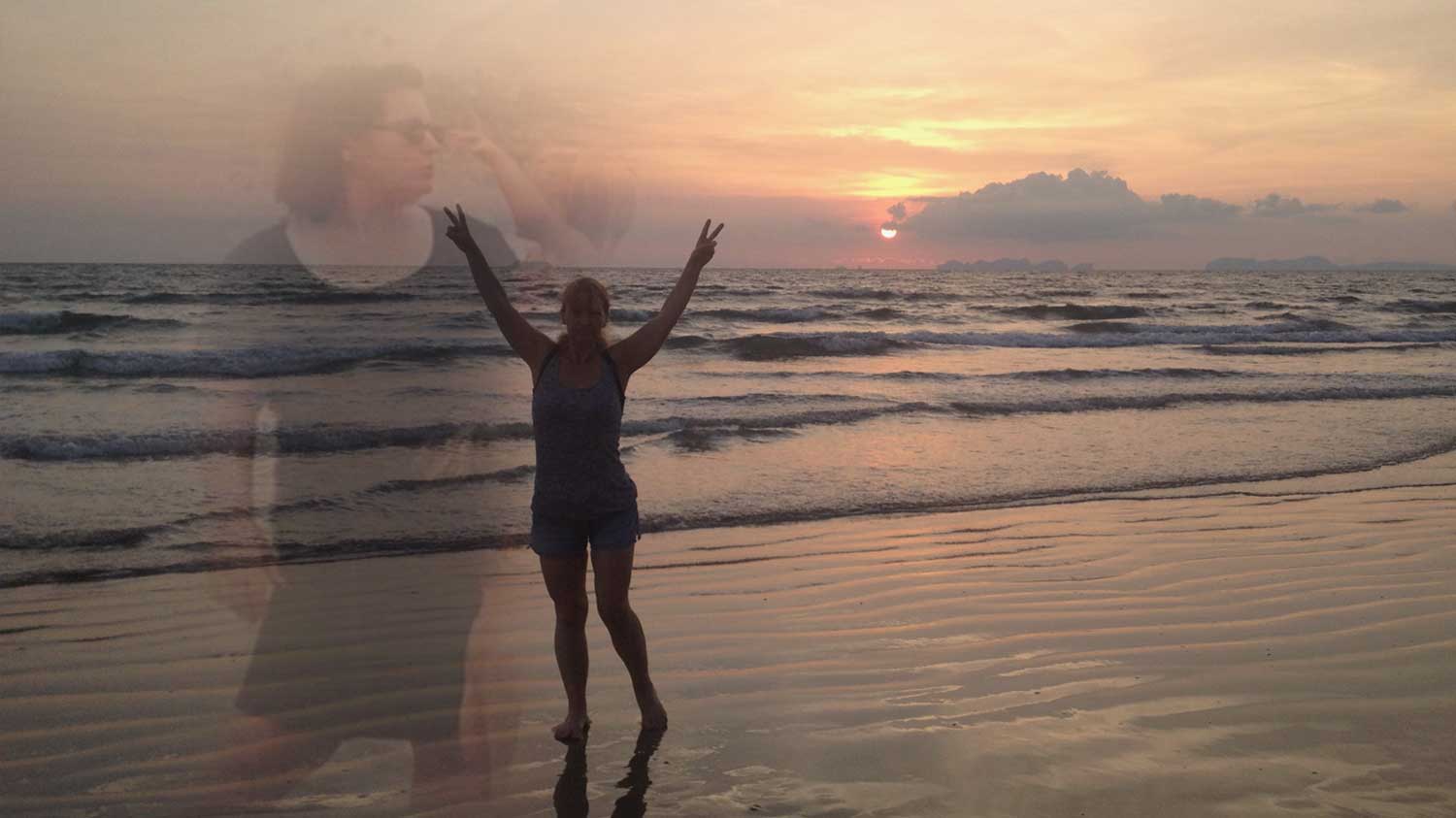How to Start (ep. 3)

Don't know how to start losing weight and get fitter?
Episode 3A with background music
Episode 3B voice only
EPISODE SUMMARY:
Slip on your sneakers and listen to this coached walk and podcast. If you're finding it hard to get started with weight loss and exercise and need a little help, you'll get what you need in this episode.
There are tips for everyone, whether you're a beginner or jumping back into things.
WE TALK ABOUT:
- How do you start working out or eating healthier?
- Why should you start small?
- How does making a simple plan speed things up?
- Why do you need a backup plan and how do you make one?
- How do you stick with weight loss and exercise?
OTHER WAYS TO LISTEN:
TRANSCRIPT
"Hey, I'll just start tomorrow. So, go ahead and just head over those nachos." "I've got a lot of stuff going on this weekend and I'm going to bake bread and stuff. So I'm going to start Monday." "Next month would be better because I've been really busy and I'm really tired. So I think next month I'll feel stronger and ready to start." "Hey, January 1st is coming up. I think I'm going to start January 1st, or maybe June 1st, in time for bikini season."
Today we're going to talk about getting started. One of the hardest things with anything, not just weight loss or exercise, is getting started. We always wait until Monday or we wait until next month.
I'm not a big fan of New Year's resolutions because we start out really strong and then within three weeks — well, for me, it was always like three days — but most people last for three weeks. Then you just can't stick with it anymore because it was just too hard and because you started too strong.
So getting started is always most difficult because you have to make a lot of choices in the beginning. It doesn't matter what it is that you're getting started with.
The best way to get started is to start with baby steps. I say that all the time and I write about it all the time because that's really what works.
Some people do well with, for example, a more strict diet plan or a more strict workout regimen. Some people need a little more flexibility, and some people need to start really, really small. So you want to figure out what works for you. Again, that applies to everything in life.
If you wanted to get a Ph.D., you wouldn't immediately jump into advanced physics when you're 20 years old. You want to start with lower classes, easier classes, and that's the same thing you want to do when you’re getting started with weight loss or getting fitter.
My favorite saying is to take baby steps. With baby steps, it allows you to make little movements towards your goal, kind of similar to what I talked about in the motivation episode (episode 1), except you're actually going to make concrete steps that will be a little bit smaller, and then get a little bigger as you go along. That's the way that I lost weight — starting with baby steps.
Now, sometimes I overreach. Like one of the first bicycle rides I did after I lost weight. I went with a group of spinning instructors. I bought a mountain bike. I don't know why they sold it to me; I bought it (it was too heavy). And I thought, "Well, I'm a spinner, of course I can go on this bike ride up the side of a mountain.” Needless to say, it was a very painful two hours, and within 20 minutes my thighs had burned out because I was muscling my way up the hill. I didn't really know how to bicycle properly.
I continued on because that's who I am and that's what I wanted to do. I cried. It was so hot. It was July. I was foaming at the mouth and one of my fellow spinning instructors actually pushed my bike for part of the way with me on it, pushed my bike with me off it, and I just kept going and crying and working my way to the top. So it took two hours instead of the hour and a half it should have. That was not baby steps.
That's not what you want to do because I was wrecked. By the time I was done and got back home, I was wrecked for three days because I put so much effort into it and I wasn't ready for that type of effort. I'm still trying to learn not to go like 100% all-in. I'll tell you another story about that as we progress.
With getting started, for example, if you want to lose weight the best way is just to make small changes in the beginning.
Eat half of your meal. If you normally eat this size portion, take half, put it in a container, and put it away. Same thing if you're out at a restaurant… get part to go. Take half of it, put it in a box. That way, you're still eating the food you like, but you're not going overboard and you're only eating until you feel full.
If it's in front of you — at least if it's in front of me — I'm going to still eat it because it's usually really good and I'm not that good of a cook. So if I get something from somewhere else, I'm usually going to try to eat the whole thing.
That would be a really good first start. The second tip would be adding a little more vegetables. Try to think of ways where to add vegetables into your diet whether it’s a vegetable soup or a nice big salad. You have to watch that dressing, though, because that dressing can have so many calories you might as well eat that brownie fudge sundae.
Another way that you can take little baby steps is to try to drink a lot more water throughout the day. You can also drink green tea. Soda water is my favorite. I love the bubbles and they make me more full. Those would be some great things to get you started.
With exercise, start out with something that you can do, like walking with me. Walking is great exercise. As you get stronger, you can actually buy a weighted vest. They are really good because they add a little extra weight to you. You can carry a child on your back, too. Oh, I bought a backpack for my cat. She hasn't gotten in it yet, but I can add her to my back.
Another tip to get started with exercise is just to set a timer. Now, I talked about that in the motivation episode but actually set a timer for like 15 or 20 minutes. That's a really good starting point for exercise. Then you try to do something during that 15 or 20 minutes period. There are tons of great videos on YouTube that are that length you can do a lot in 15 or 20 minutes, really.
You can also string those together. I call them blocks. I have food blocks and I have exercise blocks. There's a free guide on my blog that you can download. I talk about the exercise blocks and the food blocks.
I'm intrinsically lazy even though I work really hard. I know that doesn't make any sense. But sometimes I'm like, "She's super lazy, yow. Everybody sing…” By the way, if you're a 70s person you will stop there. If you're an 80s person, you will go, "Hammer Time!"
Committing to yourself is the most important part of getting started with anything because we often let ourselves down. We often have too high expectations. And if you're anything like I am or I have been, I always let myself down. I always failed myself. In the back of my mind, I knew that I could expect failure. I think it's important to really have a little chat with yourself and write down some things that you can do to have little successes and the little successes build into bigger successes.
A lot of us who try to diet or exercise and can never stick with it, feel a sense of failure and then that's what we expect from ourselves. So you can do some small things that will give you some more successes in the success column.
Look at it like a scale at a supermarket or the old-fashioned scales, or the scale of justice. The failures that we have — not just with this, but with a lot of things — sometimes the failures really outweigh the successes. So the failure side of the scale gets heavier and then the success side gets lighter. We want to start filling up the success side with little successes. We want to balance that scale, and even better if we can get those successes to outweigh the failures.
I was a constant failure. I set myself up for failure because I didn't believe in myself. I dropped out of high school. I went to college, but I dropped out of high school, and I also dropped out of college because I used the excuse that I was working two jobs and going to school and so I was tired. But really that was an excuse. I expected myself to fail and I pretty much failed at anything that I did. I set myself up to fail because that way, I could prove to myself that I was a failure.
After my father passed away (you can hear more about that in episode 2), I started to do a little more self-care and I started to walk a little, eat a little healthier. I started to do these little things that were successful, not the mountain thing — that was crazy — but just normal things.
When I would consistently walk the kids to school, being consistent with that little thing made me feel successful. And it was something that I incorporated as part of my life. Then I tried, for example, that spinning class that I also talked about.
Eventually, I started to consistently take spinning classes and I always picked the hardest instructors because I'm just weird like that. So there was one thing — we call it running where we are out of the saddle and then going really fast. As I got in better and better shape, I could do that longer and longer. And that was another success in the success column for me.
Eventually, I got certified to teach spinning, which was huge for me because I've never finished anything in my life and I finished this certification. I did the studying, I went to the workshop, and I took and passed the test (later, I even wrote for the Spinning.com blog). Then I studied for months and months to take my ACE personal trainer exam. That was really hard and I felt like I wasn't prepared.
I had to drive all the way to UCLA to take a paper test. Every time I had to pee — which is like every ten minutes — I had to show my ID to get back in. They were really strict. I was sure that I failed. We didn't get the results right away. It took like three weeks. And then when I passed, I was shocked because in my heart I thought for sure I failed because it was really hard. A lot of math, and I'm not good at math.
So, little by little those successes added up. When I wrote my first book, 21 Days to Change Your Body, it was difficult because I was living in a house that was infested with mold. All of us — me and my kids, and my roommate — all got sick. Then I threw my back out. So for three months, I couldn't turn over in bed. My daughter had to sleep with me and had to roll me over at night because I couldn’t roll over on my own. I would cry because it hurt so much. I went to spin because I still taught spin. My spinners would put my spin shoes on for me. Then I would slowly get on the bike and be very careful.
When I finished my book, I did it sitting on my knees on a pillow in front of my desk because I couldn't sit in a chair. That was like a giant hurdle. That was a bigger hurdle than the mountains in many ways, and it was the biggest success because I was able to finish the book with all these factors stacked against me.
Doing something like that — something that's so big in your own mind — really changes you as a person inside. So you start small and then you start little-by-little adding more successes into that column.
With exercise, there are a lot of things that you can do to give yourself those little successes. For example, let's say you can only plank for five seconds. So you plank for five seconds, but you practice every week. Then suddenly, you're up to 10 seconds. Then suddenly you're up to 15 seconds. That's really measurable, and that's the kind of thing that'll really help build up the success in your mind.
That's why spinning was really good for me and is really good for a lot of people because you really see improvements and they're pretty measurable. One class you can't stand, two classes later, you're standing and that's a huge thing. So you want to try to do physical successes that are measurable to you.
It’s harder to measure if you're hiking, for example, because it could have different variables that make it more difficult. Maybe it's been raining. The ground is soft. You never know. So then that's a little bit harder to measure
Try to do some things that are measurable to you because those little successes all add up in the end and that's what's going to change you. That's how you're going to make things happen.
So the first thing you can do with exercise — other than just starting with a 15 or 20-minute video — is mark on the calendar, but not the way I used to mark on the calendar (I talk about that in episode 2). Mark on the calendar or in a little notebook what you plan to do that week and make sure it's doable.
Don't say, "I'm going to go to five one-hour classes this week," if it's really not feasible, but you can put in a 20-minute walk. You can say, "I'm going to do this 20-minute video." Actually, you can download the template on my blog. I have a template with these little blocks. You can just download it at realworldweightloss.com and it says "Free Weight Loss Course". In those little blocks, you can fill out what you're going to do. You can actually do twofold. You can fill out maybe one color ink what your plan is and another color ink what you actually did.
Then also make back up ideas for yourself. Okay, so maybe you want to go to Zumba. That's your plan: Zumba three days this week. But what if you can't go to Zumba? Make a backup plan.
Can you walk for 10 minutes and then maybe do 10 minutes of core work (abs)? You make that backup plan because if you say you're going to go to Zumba and you don't go to Zumba, you're going to feel bad about yourself. When you feel bad about yourself, you're not going to keep up with it. You have to build those successes.
Think what else that you can do to start and make a list of the things that you want to accomplish. But don't look at the bigger goals. You want to look at smaller goals because you want to build those successes. You can even reward yourself. Every time you exercise, put some money somewhere (not in the bank because you can take it out and spend it on other things).
You can have a little piggy bank of some sort, preferably glass so you can see it. You can put money in there every time you exercise, even if it's only 10 minutes, 15 minutes, 20 minutes. For people who have really demanding jobs, it's really hard for them to find the time to work out. So you can use that as a way to motivate yourself and to get started with it.
After a while you won't need to use all these tricks. But in the beginning, you're going to need that because you're going to have to build on those successes. You're going to have to start small. People don't want to start small and I understand that because we all want to go in 100%. We all want to believe that we can do all this and some people can.
Some people do really well, like I said before, with structure, do really well with pressure, and they do really with accountability. Some people like me don't like it. Recognize which way you are.
Even if you're working on things other than weight loss or exercise, do the same thing. Start with smaller steps, and then make yourself accountable to yourself. Make sure that there are milestones that you're going to actually reach and then give yourself a backup option.
You have to have a backup option because life never goes as you plan.
Now, look at your whole week. When you want to start with something, don't just think, "Well, this day I didn't walk like I intended to so now I'm not going to walk over. Now I'm going to just go ahead and do nothing the rest of the week." Look at your whole week because your whole week is what counts, not what you did or ate that individual day.
A lot of people say that they hate to exercise. I have had personal training clients who told me that they hate to sweat. When you really connect with your body and you find something that you don't "mind,” it actually feels really good to move your body and then to give yourself a little bit of a challenge.
When we get back from walking make a little note for yourself right away because if you're anything like me, you're going to forget. Make notes in two columns. Let's just say you're trying to exercise more and maybe you want to lose weight. So make notes for this coming week starting today or tomorrow: What you can do to start? What can you do to start small?
If you love carbs like me and you feel sick if you don't eat carbs… if you go on a keto diet I can almost guarantee that you're not going to make it very long because it's not doable for who you are. You have to pick something that's doable for you.
I like chocolate. If I have a little bit of chocolate, then I just feel happy. Easier to stay on track.
Remember to start small. You're going to start with something that's manageable for you. And that goes with other things that you're trying to do.
Let's say you want to ride a 50K bike ride. So you just start out small (and not up a mountain) with a 10 minute or 20 minute flat ride. Then, later on, you can find some hills little by little.
If you want to paint your house, you probably wouldn't decide that you're going to paint the entire house in one day. Especially if you're learning to paint because you would just start something small with a tiny bit of paint so you don't ruin the big paint can. You would just start, "Okay, I'm just going to do this wall like that. Okay, that looks good." Then the next day, you could do another area and then you could do an entire room. It starts small like that.
If you're starting a new career, you don't blast onto the scene at full throttle and outpace or outsell everybody. Anytime I've started over, I've always had to start at the bottom and learn and work my way up.
When you start teaching group exercise, you never start with the best glasses. You have to start with whatever they'll give you. I'm not a morning person and for the first year I taught at a gym I had to teach at 5:30am on Fridays. It was like hell but I did it. Eventually, I got better class times.
You can't get your spinning class? What else can you do instead?
And you don't want to eat the whole loaf of bread. So probably you don't even have really good bread in the house. You keep crappy bread that you don't like. That would be a way of starting. Really good homemade bread is my trigger. I will not eat store-bought bread, so I can have that in the house and I'm not going to eat it. But when my son makes his delicious, hard crust outside, soft inside, beautiful, amazing-smelling bread… it’s everything I can do not to block him out of the house and eat all the bread.
Starting small also means outsmarting yourself; faking yourself out. That's part of getting started with anything. So when you get back, you're going to do some stretching and then you're going to make little notes for yourself. You can get a really cute notebook with colored pens or something. You can doodle in it almost like a bullet journal except not with all those other requirements.
But if you don't make a plan and a backup plan life will always try to throw something right at you. Then it's going to be much harder to get started. After you've been going on for awhile and you've been doing it for awhile, then you don't have to plan quite so much. You won’t have to make concrete backup plans because you already know what to do.
I’ll see you next time on the Walking & Talking with Helen podcast.




